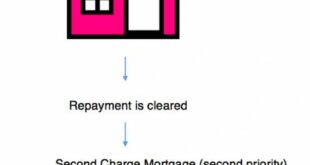Contents
- 1 Understanding Second Charge Mortgages
- 2 Home Improvements
- 3 Debt Consolidation
- 4 Funding Education or Major Expenses
- 5 When Should You Consider a Second Charge Mortgage?
- 6 Pros and Cons of Second Charge Mortgages
- 7 The Application Process and Eligibility Criteria
- 8 Understanding Second Charge Mortgages
- 9 How Second Charge Mortgages Work
- 10 When to Consider a Second Charge Mortgage
- 11 Comparing Second Charge Mortgages with Other Options
- 12 Navigating the Application Process
Understanding Second Charge Mortgages
When financing a significant life expense, many homeowners explore various options. One of these options is a second-charge mortgage, also known as a secured loan. This article will delve into second-charge mortgages, their benefits, risks, and when they might be the right choice for you.
What Is a Second Charge Mortgage?
A second charge mortgage, often called a “second mortgage,” is a secured loan taken against the equity in your property. Unlike the primary mortgage, which is the first charge on your home, a second charge mortgage is a secondary lien. This means that in the event of default and foreclosure, the primary mortgage lender is repaid first, and the second charge lender is repaid afterward.
When Should You Consider a Second Charge Mortgage?
Home Improvements
One of the most common reasons people opt for a second-charge mortgage is to fund home improvements. These loans can provide the capital needed to renovate your property, adding value and enhancing your living space. It’s essential to ensure that the increased property value will outweigh the cost of the loan.
Debt Consolidation
Debt consolidation is another scenario where a second-charge mortgage can be beneficial. If you have multiple high-interest debts, like credit card balances or personal loans, consolidating them into one secured loan can lower your overall interest rates and simplify your finances.

Funding Education or Major Expenses
Second-charge mortgages can also finance significant life events such as education expenses, weddings, or medical bills. These loans offer a lump sum that can cover substantial costs without requiring you to liquidate your investments or savings.
Advantages and Disadvantages of Second Charge Mortgages
Advantages
- Lower Interest Rates: Second-charge mortgages often have lower interest rates than unsecured loans because they are secured against your property.
- Access to Larger Sums: You can typically borrow more significant amounts with a second-charge mortgage than with unsecured options.
Subtitle 1: Understanding Second Charge Mortgages
A second-charge mortgage can be attractive when you need additional funds but don’t want to remortgage your home. In this post, we’ll delve into the world of second-charge mortgages, exploring what they are, how they work, and the situations where they might be the right choice for homeowners.
A second charge mortgage, often called a “second mortgage,” is a loan secured against the equity in your home in addition to your primary mortgage. This means you have two loans on your property, each with its terms and conditions.
Subtitle 2: How Second Charge Mortgages Differ from First Mortgages
One of the primary distinctions between a second-charge mortgage and a first mortgage is the priority of repayment. Your first mortgage always takes precedence in case of default. If you can’t meet your mortgage obligations, your first mortgage lender gets paid first, and the second charge mortgage lender receives their share afterward.
Because of this, second-charge mortgages are considered riskier by lenders and typically have higher interest rates. However, they can give homeowners access to substantial capital without remortgage.

When Should You Consider a Second Charge Mortgage?
There are several scenarios where a second charge mortgage might be a suitable financial solution:
- Home Improvements: If you want to fund home renovations or extensions, a second-charge mortgage can help you access the necessary capital without altering your existing mortgage terms.
- Debt Consolidation: You can use a second-charge mortgage to consolidate high-interest debts, like credit cards or personal loans, into a single, lower-interest loan.
- Business Investment: If you’re an entrepreneur or a business owner, a second-charge mortgage can provide the capital needed to invest in your business, such as expanding your operations or launching a new venture.
- Purchasing a Buy-to-Let Property: Some individuals use second-charge mortgages to finance the purchase of additional properties, particularly for buy-to-let purposes.
Pros and Cons of Second Charge Mortgages
Before opting for a second charge mortgage, it’s crucial to weigh the advantages and disadvantages:
Pros:
- Flexibility: Second-charge mortgages are versatile and can be used for various financial needs.
- No Need to Remortgage: You won’t need to remortgage your entire home, which might lead to higher interest rates.
- Access to Larger Sums: Second-charge mortgages often provide more substantial amounts than personal loans or credit cards.
Cons:
- Higher Interest Rates: These loans generally have higher interest rates than primary mortgages.
- Increased Risk: Because they are secondary to your primary mortgage, defaulting on a second charge mortgage can put your home at risk of repossession.

The Application Process and Eligibility Criteria
You’ll typically need to meet specific eligibility criteria to apply for a second-charge mortgage. Lenders will assess your income, credit history, and the equity available in your property. The application process includes a thorough credit check, a valuation of your property, and a detailed affordability assessment.
Working with a reputable mortgage advisor who can guide you through the process is essential, helping you understand the terms and find the best deal for your circumstances.
Understanding Second Charge Mortgages
In the realm of mortgages, second-charge mortgages are a lesser-known yet valuable financial tool that can offer homeowners a unique way to access additional funds. While first-charge mortgages are the primary means to purchase a home, second-charge mortgages serve a different purpose altogether. This comprehensive guide will delve into second-charge mortgages, exploring what they are, how they work, and when they can be a smart financial choice for homeowners.
How Second Charge Mortgages Work
Second-charge mortgages, often referred to as “second mortgages” or “secured loans,” are a means of borrowing money against the equity of your property. Unlike first-charge mortgages, which are used to purchase a home, second-charge mortgages are taken out on properties that already have an existing mortgage. The lender places a legal charge on your property, securing the loan amount, and this takes precedence over unsecured loans. This section will explain the mechanics of second-charge mortgages, including the loan-to-value ratio, interest rates, and repayment terms.
When to Consider a Second Charge Mortgage
Secured loans through second-charge mortgages can be a sound financial solution in various scenarios. Whether you want to undertake home improvements, consolidate debts, or invest in a new project, these mortgages offer flexibility and convenience. In this section, we’ll discuss the situations where a second-charge mortgage might be the right choice for you, considering the benefits and risks involved.
Comparing Second Charge Mortgages with Other Options
When it comes to borrowing money, there are several avenues to explore. Understanding how second-charge mortgages stack up against other financing options like personal loans, remortgaging, or unsecured loans is essential. This section will provide an in-depth comparison, allowing you to decide on the best route based on your unique financial goals and circumstances.
Applying for a second-charge mortgage involves several steps, including assessing your eligibility, choosing a lender, and gathering the necessary documentation. We’ll guide you through the application process, offering tips on improving your chances of approval and securing the funds you need. Additionally, we’ll provide insights into what lenders look for when considering second-charge mortgage applications and help you prepare accordingly.
Conclusion:
In summary, second-charge mortgages can be an excellent financial tool for homeowners seeking to leverage equity in their properties for various purposes. Understanding the intricacies of these loans, when to consider them, and how they compare to other options is crucial for making informed financial decisions. Following this guide will give you the knowledge and confidence to explore the potential benefits of second-charge mortgages and use them wisely to achieve your financial objectives.
 Ahammed World Afffaires
Ahammed World Afffaires


